By Lori Freeze


By Lori Freeze

At the end of her sophomore year at the University of Arkansas, Antoinette Grajeda had a decision to make – a major had to be declared.
“I really had no idea at the time,” she said. A discussion with her academic advisor included her statement that she likes to write. He suggested English as a major, but she vetoed that idea because she mainly saw teaching as the logical and unwanted career direction. He then suggested journalism and, as is said, the rest is history.
That began a career path that has led Grajeda to her current position as deputy editor of the Arkansas Advocate, a non-profit, non-partisan online publication reporting on how governmental policies affect the lives of everyday people.
“It suits my personality,” Grajeda said of her decision to pursue journalism. “I am so curious about the human condition. I like to ask questions and find out what people’s passions are. Some people don’t see themselves as having a story to tell, but they do.
“I love the idea of being a professional storyteller. And it just amazes me that I get paid to talk to people and learn about them.”
Grajeda began working at the Advocate in 2022 as a senior reporter, with much of her emphasis relating to Northwest Arkansas. She was promoted to her current position in March of this year. She still is located in Northwest Arkansas, but her focus now is more statewide.
without advertising, subscription fees or paywalls.
Grajeda said States Newsroom publications are filling a need in covering state governments and related policy issues. She noted that, for example, there is one state in which States Newsroom effectively is the only outlet covering state government on a regular basis.
Grajeda foresees an important future for non-profit journalism in the United States as some traditional newspapers continue to suffer financially, sometimes leading to creating “news deserts” in individual communities as well as shrinking coverage of important societal issues.
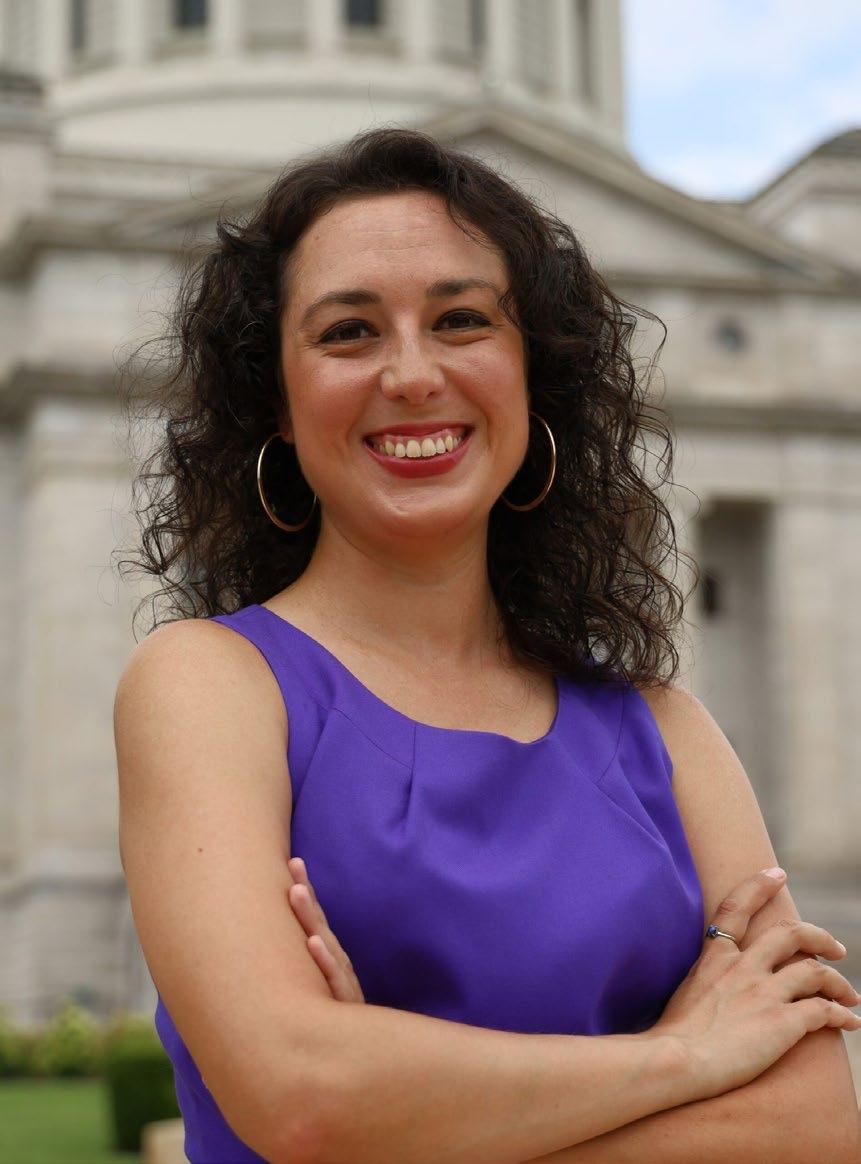
Launched on Aug. 16, 2022, the Advocate is part of a nationwide network, States Newsroom, which began with six outlets in 2018 and has grown to 39 across the country. All the outlets are funded by donations that support non-profit, high-quality journalism
“One of the biggest advantages to non-profit journalism is the ability for newsrooms like ours to have a direct relationship with the communities that we serve,” she said. “Because we live and work in these communities, we know the issues that are most important to our audience and can reflect that in our reporting. When newsrooms are owned by large corporations headquartered in other states, reporters sometimes lose flexibility over the topics that are covered. Additionally, the people running those corporations likely don’t know the nuances of our communities because they don’t live here.
“I also think being supported by local donors instead of large advertisers helps build trust among the general public, which has come to distrust the media as a whole over the last decade or so. It is easy for someone to dismiss reporting that they think is tied to an advertiser. It’s harder to do that when your funding comes from local readers who choose to invest in your reporting because they believe in your work and want to support it so you can continue providing that service to their community.”
Continued from page 1
Grajeda is a member of a staff that also includes editor-in-chief Sonny Albarado and reporters Tess Vrbin and Mary Hennigan.
“It is just a great staff to work with,” Grajeda said. “The staff is so committed to serving the public and I think that leads to trust and buy-in from our readers. We are focused on providing them with information that will help them make decisions that affect their lives.”
Grajeda said some of the political aspects of her coverage are new to her and she is continuing to learn how governmental issues affect Arkansans. One specific area of focus in the past year has been the emergence of numerous important direct democracy efforts related to ballot initiatives. “It is interesting to know that about half of the states in the country do not have this option,” she said.
She noted that many public policies relate to Arkansas being such a poor state, with particularly difficult situations in many rural counties. “As a result, there are not a lot of easy fixes in areas such as health care and education. There is just so much that people can do in trying to chip away as these massive problems.”
During her time at the Advocate, Grajeda has specialized in education coverage. That has been a critical area of concern in Arkansas with the implementation of the LEARNS initiative developed by Gov. Sarah Sanders. “It is a massive state of change, with a lot of moving parts,” Grajeda said She said there have been popular aspects of the new initiative, including the huge increase in starting teacher salaries. But
questions also have arisen, such as whether local districts can continue providing increases for veteran teachers in their salary schedules. Another controversial aspect of LEARNS, she noted, is the impact of vouchers on public school systems.
“There seems to be a strong desire to improve Arkansas’ education system, but disagreement on how to accomplish that goal,” Grajeda said. “I think an important factor in efforts to improve education is working together on issues where Arkansans can find common ground. A lot of factors outside the classroom contribute to issues inside the classroom, such as poverty.
“Perhaps Arkansans could unite around addressing some of the root causes of poverty. It might provide a forum for compromise and partnership as opposed to something like the state’s new voucher program, which has proven to be quite divisive.”
Grajeda said it is important to the Advocate staff to take steps to increase the impact of coverage throughout Arkansas, into neighboring states – and sometimes nationally.
“Journalism is a public service so it’s important that we deliver important information to as many people as possible. One of the ways we’re able to share our reporting with larger audiences is through other organizations republishing our content under a Creative Commons license – basically you credit the Advocate as the original source and link back to our site.
“As an affiliate of States Newsroom, we often repost our stories among our sister sites (we have fully funded newsrooms in 39
See GRAJEDA Page 3
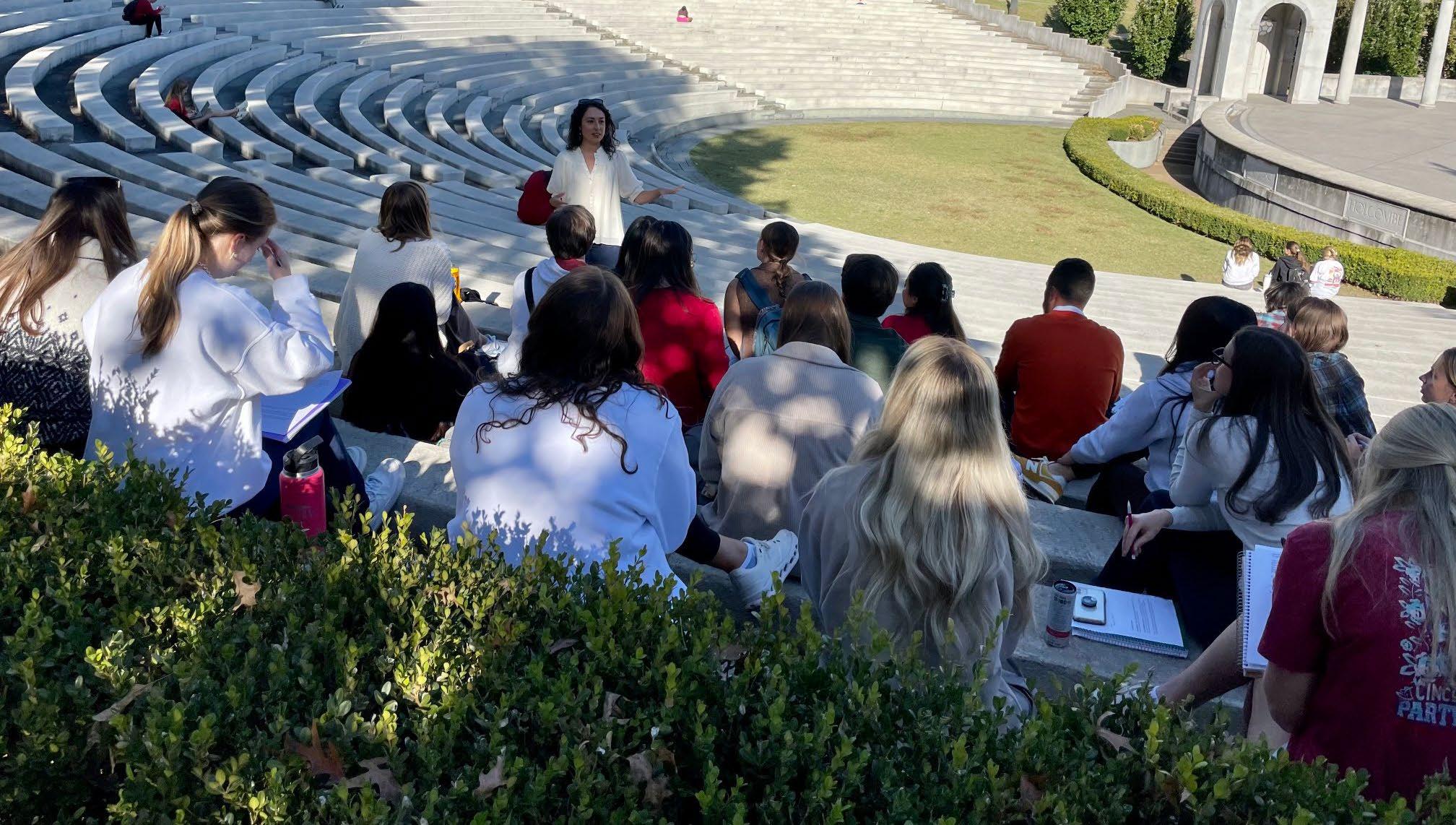
Continued from page 2
states and partner non-profit outlets in 11 states). Outside of that, several smaller Arkansas newspapers and online entities regularly repost our content. I’ve also seen national organizations like Yahoo News pick up our stories.
“Additionally, we’re able to reach larger audiences by talking about our reporting with television and radio stations. We’re frequent guests on programs on Arkansas PBS, KY3 (Springfield, Missouri television station) and Little Rock Public Radio.”
Grajeda graduated from Rogers High School before earning her bachelor’s degree in journalism from the University of Arkansas. She went on to earn a master’s degree in journalism with a focus on documentary film. While a student, she freelanced for local newspapers in Northwest Arkansas.
She spent 12 years as a news producer at KUAF Public Radio in Fayetteville and also served as editor-in-chief of Arkansas Soul, producing content and amplifying the voices of BIPOC (Black, Indigenous and other People Of Color) Arkansans.
Grajeda also has spent more than 16 years as a coach/mentor for the Lemke Journalism Project, a six-week program that teaches local high school students about multicultural journalism. She also serves as president of the board of directors of the Spark Foundation, a non-profit that creates a positive impact in the community by providing increased access to health and fitness education and opportunities.
In her time away from work, Grajeda enjoys playing soccer, hiking and traveling. She also is a member of the Columbus House Brewery Running Club in Fayetteville.
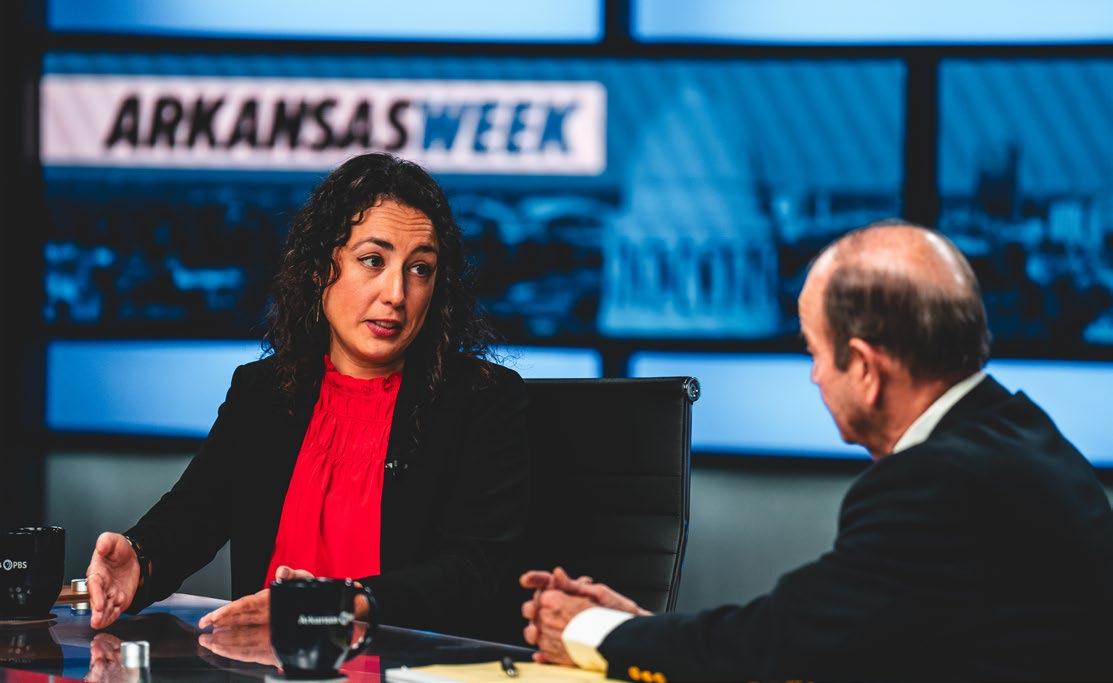
Looking ahead, Grajeda is upbeat concerning the future of the Arkansas Advocate and her new role as deputy editor.
“I love learning new things, so I’ve relished the challenge of learning a new skill set for investigative reporting and covering politics,” she said. “For most of my career, my reporting has focused on Northwest Arkansas, so it’s also been fun expanding my circle to meet new people and explore other parts of the state.
“It’s also just an honor to work with such a talented group of journalists. We’re a small team, but everyone works so hard. We all learn from each other and support each other, which has been such a treat. I know it’s not a luxury afforded to all newsrooms, so I feel incredibly lucky and blessed to be in this position.”
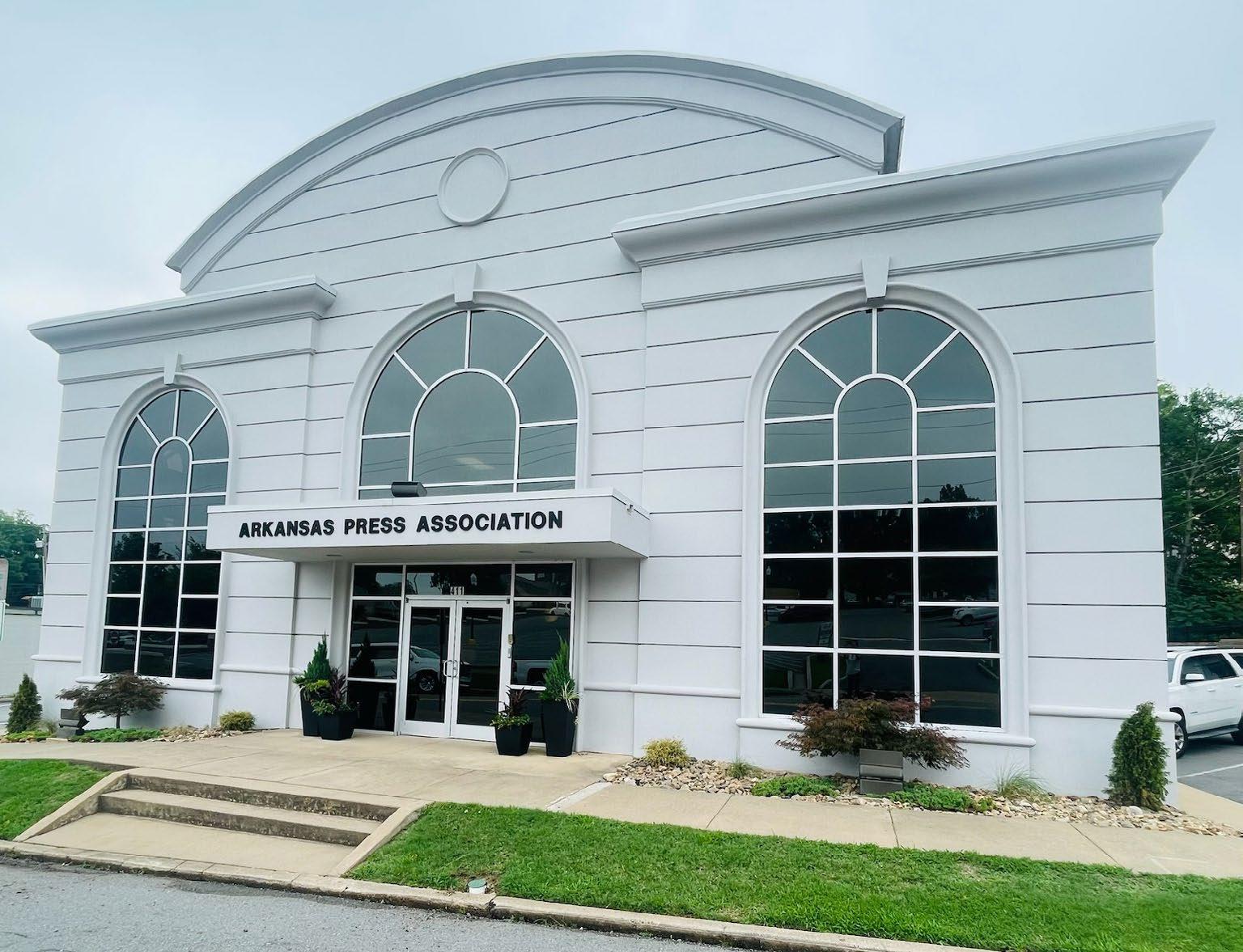
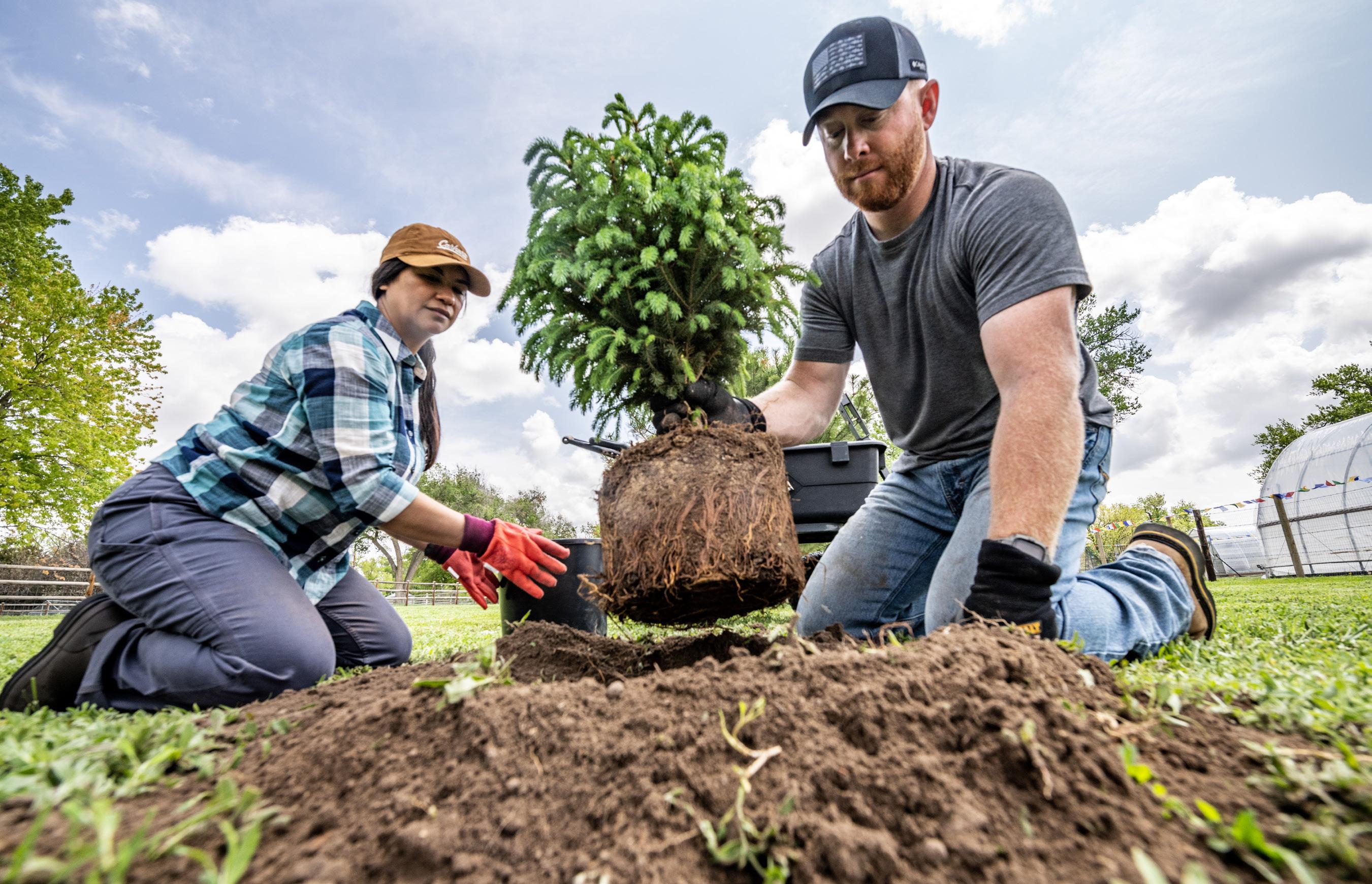
Whether you’re planting a tree or digging a post hole, it’s critical to know what’s underground. Safety is in your hands. Every dig. Every time.
Have your buried utilities marked before you dig.
Last Friday, Arkansas Attorney General Tim Griffin approved the language for a 2026 proposed constitutional amendment that will aim to enshrine the Freedom of Information Act as a constitutional right. Now known as The Arkansas Government Disclosure Amendment of 2026, the text is the same as the proposed 2024 constitutional amendment, which fell short of the required signature count due to a lack of time and resources.
In additon to making government transparency a constitutional right, it would also require two-thirds of the Arkansas House and Senate to approve changes to the government transparency law, which would then be sent to voters. In emergency situations, a law would go into effect with 90% approval from both chambers but still be subject to a later statewide vote.
Arkansans for a Free Press, a Ballot Question Committee formed by APA in May of this year, submitted the proposed initiative, and may now begin collecting signatures and fundraising ahead of the 2026 effort.
Serving as the committee’s chair is APA past president and former Texarkana Gazette publisher Buddy King. Other officers are: APA past president and former Harrison Daily Times owner Jane Dunlap Christenson, vice chair; APA past president and former Community Publishers president Mike Brown, secretary, and ANF board member and Dean Emeritus, Clinton School of Public Service Skip Rutherford, treasurer.
Also on the committee are APA President and Helena World and Monroe County Argus publisher Andrew Bagley, ANF board member and Stone County Leader publisher Rusty Fraser, Phillips Media Group president Jim Holland, former
associate professor in the School of Journalism and Strategic Media at the University of Arkansas Gerald Jordan, APA past president and former vice president of operations at Rust Communications Ron Kemp, APA past president, ANF board member and Madison County Record publisher Ellen Kreth, APA board member and Carroll County Community Media publisher Scott Loftis, Executive Director of Arkansas Scholastic Press Association Renette Smith McCargo, professor of law at UA Little Rock William H. Bowen School of Law Robert Steinbuch, Little Rock FOIA Attorney John E. Tull and APA past president and former AdvanceMonticellonian and Warren Eagle Democrat publisher Tom White. APA Executive Director Ashley Kemp Wimberley is serving the committee in an advisory capacity.
Northwest Arkansas Democrat-Gazette Arts Editor and host of “Know The News” podcast Becca Martin-Brown retired July 11 after 35 years in the industry.
“I’ve been doing this since stories were created on typewriters and sent off to the fastest typists in the world to turn into strips of punched dots that turned into strips of film that turned into pages that were built on a slanted board in the back shop by some of the most creative designers I’ve ever known,” wrote MartinBrown in her final column published that day. “I hate to say it, but it’s like going from the horse and buggy to a jet. I still love it, but I’d like to slow down a little.”
The winner of multiple awards from APA and Associated Press Managing Editors, Martin-Brown began her career at The Springdale News in 1988. In retirement she plans to continue as a freelance journalist for the Northwest Arkansas DemocratGazette and KUAF 91.3 FM, Fayetteville’s public radio station. Associate Features Editor April Wallace will succeed her in the arts editor role.
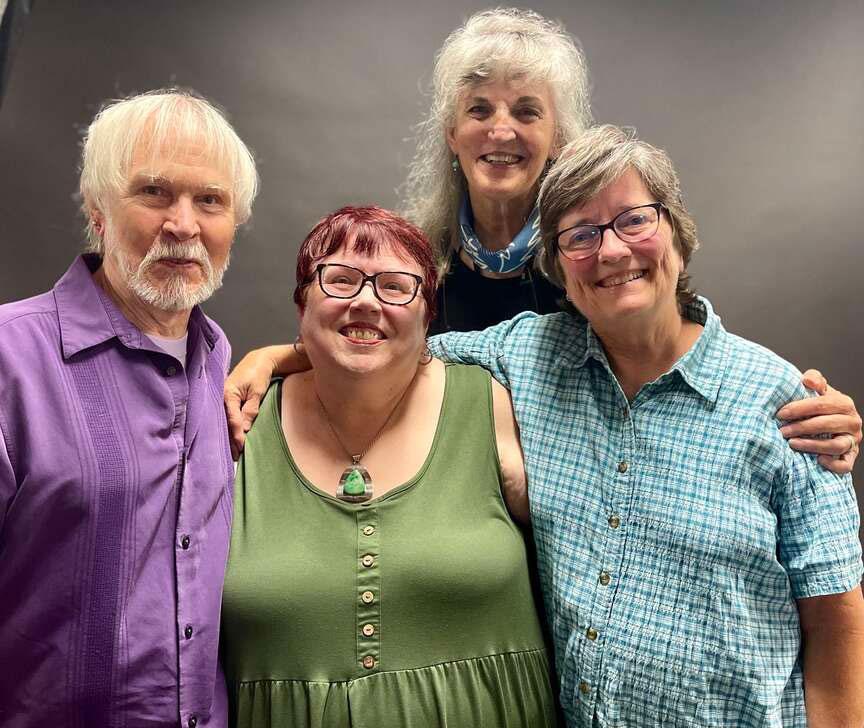
Many sources compete for attention online, including partisan blogs and bogus sites posing as legitimate news organizations, and it can be tough to know what information to trust. To help combat that problem, the News Literacy Project has partnered with SmartNews, an app that aggregates news stories from reliable sources worldwide, to create an infographic outlining how to vet a news source for trustworthiness.
The infographic, which can be downloaded for sharing from newslit.org/tips-tools/ is-it-legit-five-steps-for-vetting-a-newssource/, includes tips on determining if a source is authentic and transparent and how to identify clickbait, manipulated content and propaganda.
Founded in 2008, The News Literacy Project is a nonpartisan education nonprofit that is building a national movement to create systemic change in American education to ensure all students are skilled in news literacy before they graduate high school, giving them the knowledge and ability to participate in civic society as wellinformed, critical thinkers. Learn more at https://newslit.org/

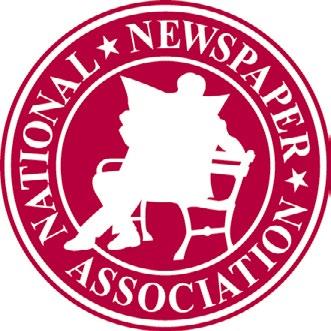
Newspaper Association Past President Matt Paxton, publisher of The News-Gazette in Lexington, Virginia, filed comments on July 8 to the United States Postal Service on behalf of NNA and its member newspapers regarding securing bundles of flats.
The comments include anecdotal information indicating that few member newspapers own or can access equipment that would apply bands to the bundles being prepared for mailing. Acquiring the equipment needed to apply the plastic
bands would place a substantial financial burden on small newspapers at a time when they are already under financial stress.
NNA proposes that where a newspaper has been directed to enter loose bundles in flats trays, the rule clearly does not require them to return to bundle preparation, and suggests that the Proposed Rule be modified to allow applicable flats that are carrier route sorted and entered at the entry office DDU, at authorized Exceptional Dispatch offices, and at S&DCs for local delivery to be bundled using two crossstrapped bands as proposed in the rule change, or cross-strapped heavy cord or twine of at least 100 lbs. working load secured with double square knots or similar
secure means. Because these bundles are not transported by USPS, nor are they worked on automated equipment such as bundle sorters and conveyors, they are not subjected to the stresses that would appear to make bundle breakage more of an issue.
NNA does not object to the elimination of rubber bands, but believes that requiring the use of plastic bands is not necessary for bundles not being transported or subject to sorting and conveyor equipment, and that proper use of appropriate cordage or twine to secure bundles will be sufficient for both the mailer and USPS for local mail entry.
Read the full text of the letter at nna. org/pub/doc/NNA-Securing-BundlesComments-3-1-.pdf
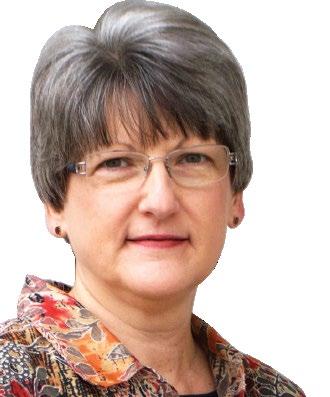


Signatures on petitions for the two Freedom of Information ballot initiatives fell short of the totals required for ballot access this November.
Measures seeking ballot access face high hurdles, and we agree that the process should be challenging enough to assure that issues have widespread support. But the obstacles should not be insurmountable.
After voters rejected two proposals to make the process more rigorous – Issue 3 in 2020 and Issue 2 in 2022 – legislators decided they could just amend the state constitution through statute and did so in 2023. After all, Sen. Blake Johnson argued in committee, they have “filled in” many parts of the constitution through statute.
However, more than a few people viewed the new law raising the county involvement from 15 to 50 as unconstitutional. Sen. Clarke Tucker told fellow committee members: “This is the most blatantly contradictory bill to a state constitutional provision that I’ve ever seen in my time in the state legislature.” He later pointed out that the constitution specifies “no legislation shall be enacted to restrict, hamper or impair the exercise of the rights herein reserved to the people.”
We may have a ruling on constitutionality as the result of a lawsuit filed in March of this year.
Tucker also suggested that upon passage
By Lori Freeze
of the law, the state motto should be changed from “Regnat Populous” (The People Rule) to whatever is Latin for The Legislature Rules because, he contended, the legislation was simply about preserving power for legislators and limiting that of the people.
It was also noted in debate over the bill that proponents of the law expressed a need to keep outside money and special interests from “sweeping in and gathering needed signatures from 15 counties.”
This argument was countered with the prediction that only measures backed by big money would be able to meet the requirements. This proved true when the abortion, medical marijuana, and anti-casino measures – the three most well-funded and organized of the seven proposals – were successful in getting enough signatures this year.
It was also noted by Misty Orpin, executive director of Common Ground Arkansas, that more out-of-state money has been involved in ballot measures referred by the legislature than those offered by the people.
We couldn’t help but notice more hypocrisy in the outcry of lawmakers against outside special interests and big money. Isn’t that exactly how the LEARNS Act came to be? And it was pushed through despite widespread grassroots concern. But that’s another argument.
Failure is never an easy pill to swallow, but the comfort coating on the failed FOIA petition effort is that supporters of open government in Arkansas have reached thousands of people across the state to alert them about dangers posed to our Freedom of Information Act and educate them on the importance of government transparency. In a time when voter apathy is especially troublesome, we are confident we have mustered some interest.
It is essential that voters pay attention. Gov. Sarah Huckabee Sanders made it clear that the minimal changes that made it through the legislative process last session were only the beginning. She needs to get the message that we heard time and again while collecting signatures: even people who generally support her conservative policies do not support wholesale changes to the Freedom of Information Act.
If you value government transparency and the concept of government spending and operations being open and available to the citizens of Arkansas, we ask that you stand with us in demanding the Arkansas FOIA be preserved. If you want public notices to continue to be placed in community newspapers rather than posted only to obscure government websites, we ask that you stand with us and demand it.
APA Past President Lori Freeze is the news editor at the Stone County Leader in Mountain View.
